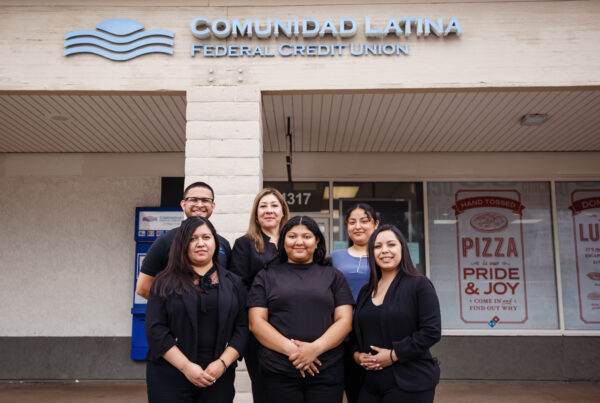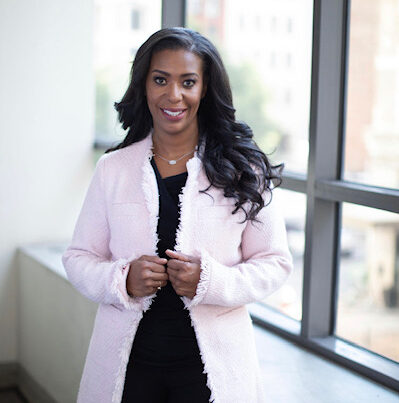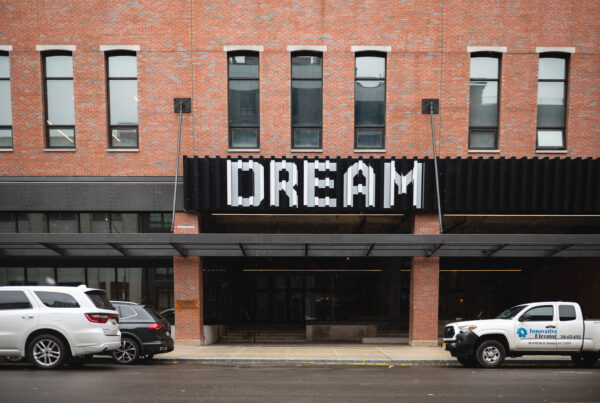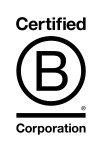Catherine Berman, CNote CEO stopped by the “basement” to have a chat with Joe, the beloved host of the wildly popular Stacking Benjamins podcast.
If you’re looking to learn more about CNote and how it works, then this interview is worth a listen. We highly recommend you check out the entire episode, but if you just want to get to the CNote part, skip to 23:30.
We’ve also provided a full transcript of the interview below if you want to skim rather than listen.
Thanks again to Joe and the Stacking Benjamins podcast, make sure to check them out.
Joe: I am super excited to introduce you to our next guest who is upstairs talking to mom. It’s funny, this is somebody who people in our closed Facebook group ‘The Basement’, have been requesting we talked to. I am excited we finally have her coming down here, because there is this person Paula who you know really well upstairs, her name is Cat Berman, are you familiar with Cat Berman?
Paula: Yes I love Cat.
Joe: Cat is the CEO of a company called CNote that Paula knows really well. She is a three-time entrepreneur with experience launching and building scalable businesses. Before she launched CNote, she served as managing director at Charles Schwab. This little company, I don’t know if you have ever heard of that company?
Paula: You know, I think I’ve heard their name once or twice.
Joe: You know that guy Chuck Schwab, Ryan?
Ryan: He’s an okay guy.
Joe: Nice dude. She led a strategy division focused on the future of finance, incorporating behavioral economics and predictive analytics. Her previous company Global Brigades is now the world’s largest student development firm operating in five countries. I am a big fan of all the stuff Cat Berman does, and let’s say hello to Cat coming down into the basement. I don’t think I’ve had somebody who has come down that people have requested more than this person, Cat Berman, how are you?
Cat: I am well, great to be here.
Joe: Everybody is requesting CNote, so apparently the word is out about you.
Cat: We love hearing that.
Joe: So tell me, I love hearing origin stories, Cat. Tell me about how CNote was created.
Cat: Absolutely. This goes back to when I was working in a major financial services firm which I think a lot of your listeners would be very familiar with. I was managing director and one night I’m sitting on sofa looking at my online accounts, and I realized I had a bunch of cash sitting in one of my savings accounts. What I thought was interesting was this cash was not earmarked for anything. It wasn’t my emergency fund, it wasn’t something I was saving for a trip or anything. This was literally cash sitting there collecting dust. So I started thinking, this is like forgotten dollars, right? Dollars just sitting there doing nothing. So that’s embarrassing, a managing director of a major financial services firm, and here I have forgotten dollars. But you know, when I got over the embarrassment, I started getting curious. I thought to myself, well if I’m doing this and I work in finance, who else is doing this? This is where it got really interesting. So I started researching it, what I found was that I was very much not alone. In fact, millions of Americans do the same thing; where we set aside cash and forget about it. Just leave it on the sides in a savings of checking account. If your money is in a traditional bank you are probably feeling that pain. Or you are earning close to zero percent. So that kind of sidelined cash is not small change. It actually amounts to over 300 billion with B, 300 billion dollars in cash sits in the sidelines in these kind of zero percent or one percent cash alternatives. So that’s when I had that aha moment, man we can do better than that, we can absolutely do better than that.
So what would it take to move those sideline dollars into something that earned us a lot more? Right? That did better for our hard earned dollars. So I brought in a friend of mine, former Wall Street professional, created financial products around the world. Her and I started brainstorming, what type of product would we want to see if we could start from scratch? We really came down to three core attributes. Number one, competitive returns, right? We work so hard for our money. How do we push our cash to work in a vehicle that really earns us a lot more than zero or one percent. Number two, simplicity. I think a lot of us listening can attest to one of the reasons we have forgotten dollars, or we don’t move our cash is– there is not easy ways to do it, it’s frustrating to open a new account, then you have to take the time, and you have to set it up. Many of us just don’t want to spend the time doing it. So if we’re going to create something, it had to be super simple. Literally, you are sitting on your couch or in your morning commute and do it from your phone. Three, it was important for us to have something that was values aligned. This time in history looking back at some of the scandals we’ve seen in financial services. We really wanted to create something that has transparency, had integrity, and put the dollars to work in a way that was meaningful.
So those three things ended up being the core principles of how CNote was founded. How do we create financial products that are competitive, earn you more, that are simple and that are aligned with your values? That’s how we started.
Joe: That’s pretty wild. To your point, I’m on the board of a non-profit. It’s a community-based none profit building walking trails. We bank with local institutions who support us.
Cat: Awesome.
Joe: But here’s the bad part, we went to open up a new account with some local bank, and I swear to God after talking to people like you, Cat; these people I feel like are in the business prevention society. It was so difficult, it was so, so difficult to open an account. I kept thinking about talking to you to set this thing up, thinking about how easy CNote is. So much of this could be easier.
Cat: Agreed, and I think it’s a barrier in financial services that we often discount. We don’t recognize that people don’t wake up in the morning going, hey where should I move my money today? Most Americans don’t. So how do we make people, how do we make it easier folks to do something smart and improve their financial health? I think it’s up to us, us who are designing new financial products to make it that simple, and make it that automated, and make it easy to do something good for your pocket book.
Joe: Let’s talk about how it works then, let’s walk through CNote. So how do I get started?
Cat: Sure, back to our central tenant of simplicity, it’s three steps. So in less than three minutes, you can move your dollars into a higher earning cash alternative. You start with how much money you want to start with. A key piece for us at CNote was let’s make this available to everybody, right? Because one of the things I observed when I was working in financial services, is we created an awful lot of products for those who are already earning a lot, the highest earners in our country. And so all of our financial products are accessible to the mass market. So for example, this first cash alternative, there are no minimums so you can start with five bucks if you want, you can start with five million if you want, and there is no fees. And so first step is you go online, CNote.com, chose how much you want to start with, again no minimum. The second step, create a profile. Third step, link your account, you’re done. You are not earning more than you were yesterday.
Joe: Can I set up an automatic investment to it, so it automatically puts money in every month, every week, every whatever I want?
Cat: Absolutely. We have got monthly reoccurring deposits, you can set up a trust account, you can set up a business account, all kinds of good stuff.
Joe: Now it says on your site the date that we are recording this, 2.5% is the interest that you’re paying. Obviously, interest rates are going up, how and why and when will that change? Or is that a static interest rate I’m receiving?
Cat: Yeah, the good news is that we really mean it when we say competitive. So we want to make sure we are always leading the pack when it comes to competitive returns. So that 2.5% will be going up. As you know, interest rates have already gone up, you might not have seen much of a difference in your traditional bank account. But we believe as interest rates rise we certainly want to stay competitive. So the beauty is, our business model works very similarly to other financial institutions, that as interest rates rise we can also charge more on our cost of capital, which means we can pass more of that return to you.
Joe: That’s exciting, but let’s talk about what drives under the hood. You’re taking this money and– well explain what you;re doing with it.
Cat: Yeah, so how do we do a 2.5% return when everyone is is doing 1% or less? Or if you’re lucky you’re getting a little bit more. So that’s probably the coolest part of our business I would say. We generate this return by investing in this little known but highly successful asset class called CDFI’s. The simplest way to think about them, is they are US treasury certified non profit lenders. These are folks who have been around for 20-30 years. Every major bank is already using them. They have got an incredibly strong financial performance. In fact these CDFI’s actually outperformed FDA institutions in the last recession and every since. The trick here was, you and I, Joe, could not access them readily before CNote. Large banks could, foundations could, but the average saver, the average investor could not. So that’s really what we’ve been able to do with our technology, is unlock this proven do good asset class for all of us.
Joe: When you talk about a do good asset class, explain what you mean by that.
Cat: Yeah so if you think about a non profit community lender, what are they up to? What’s their mission? Their central mission is to invest in things like schools, community centers, women led businesses, affordable housing. All the things that are in our community that we love and prize and want to see more of; that’s where they are spending their time. Those are the investments they are making to keep our communities strong, and to invest in those under served communities that are being largely ignored by other financial institutions.
Joe: Is a CNote account then– is it FDIC insured?
Cat: We are not a depository institution. So as you know, only depository institutions, large banks for example get FDIC. So we do though take protecting money very seriously. So the good news is, all the CDFI’s we work with are trusted, proven and have a track record of financial performance. The deposits are going into this, they are being diversified. On top of that we have three layers of what we call principle protection to safe guard those deposits even more. All of this information is fleshed out on our website, but the higher over view is, number one legal obligation to get your dollars back; so we have a full recourse obligation with these CDFI’s. Second, State and Federal guarantee programs to cover losses. Third, we even have our own last reserves. So three levels of safe guarding on top of a proven asset class.
Joe: I like how you go over it on the website. By the way for everybody if you’re driving down the road, walking the dog or whatever; we will have a link to CNote on our show notes page at StackingBenhamins.com, which by the way is at myCNote.com. Let’s talk about ongoing communication and that type of thing. Do people just log on whenever they want? Do you send out statements? How do I check on my account?
Cat: Yeah we do the traditional and the non traditional. So traditional wise we give you monthly account statements so you can see how your money is going to work. We even compare it to your own bank account so you can feel really good about how much money you’re earning. In those monthly statements we also include impact reports, right? Because we think it’s important you know where your money is sleeping at night, and how it’s being invested. It is pretty inspiring when you hear some of these stories. We also give a quarterly impact report on top of that. So you’re getting again, the financial performance as well as the impact. But one thing we love and we get to do that is a little bit non traditional, is get very specific about some of these borrow stories. One of the ones we highlighted in a recent quarterly report was a woman borrower who benefited from CNote investments. She is a four time cancer survivor that used the dollars she borrowed from CDFI’s to start her first company. She ended up building that company, hiring people, ended up paying back by hiring women in under served part of Kilimanjaro to be part of her supply chain. It is one of those do good all around stories. These were just saving deposits, right? These were just dollars in my account that were making zero percent sitting on the sidelines. Now by investing in CNote those dollars ultimately get to support amazing women entrepreneurs, affordable housing. Just a lot of the great community projects I like to see.
Joe: How do you go to work everyday with negative stories like that?
Cat: Yeah, right? I love what I do.
Joe: Yeah that would be awesome. Two more questions. Of course you talked about security with the money, obviously people’s financial information that kind of thing. Can you talk more about that? People’s information and your security levels at CNote.
Cat: Absolutely. So bank level security, highest level of encryption. We have a whole security and risk team on board, and phenomenal advisers as it relates to that. So no, highest, highest priority to keep your information safe. We also don’t store it, so when we do link it is also very important for us to make sure the information is not only encrypted, but that the door is closed once you have provided it.
Joe: My last question, how do you guys made money? I’m guessing that 2.5% goes out to the investor but you keep a little bit for yourself?
Cat: That’s correct. So just like any kind of deposit arrangement, we can charge a cost of capital to these CDFI’s, and the spread we make on top of that 2.5% that we are providing you is what we get back as a firm.
Joe: I would remiss if I didn’t ask, because when you talked about CNote, you didn’t talk about a place to save money at 2.5%. You talked about products and services available to a range of people. I am guessing there is more to come?
Cat: That’s correct. We start with cash because again, 300 billion sitting on the sideline collecting dust is a big opportunity. Whether that money is just the money you forgot about, or it’s the money you’re saving for your first home, or it’s your next big trip. Whatever that big chunk of cash is you have, we think this is a great place, a much better place to park that cash. But we would be remiss if we stopped that, right? If you think about the world we really could build, it’s re-thinking financial products, it’s re-thinking what they can do and who they can serve. So by taking what we know as conventional products like a savings account, a CD, or a fixed income; deconstructing it, and then saying, how do we get you a better return? How do we make sure the values align? How do we make it so simple to say yes? We actually have a whole suite of products ready to go to create that path for you.
Joe: Awesome, I can’t wait to see it. Cat, thanks for hanging out with us here in the basement and explaining CNote to us.
Cat: Yeah great to connect, Joe. Thanks for having me.
Here’s the link to the full episode.









